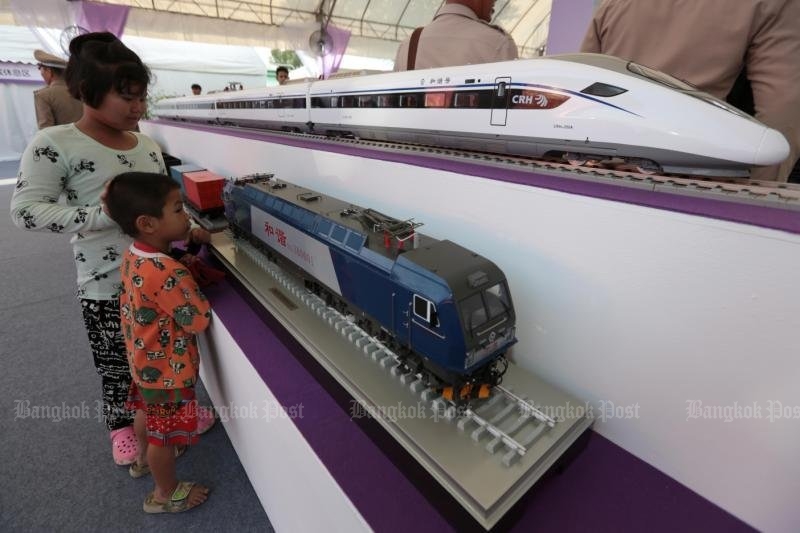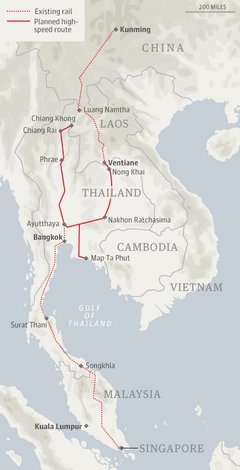
Prime Minister Prayut Chan-o-cha on Thursday affirmed the government's decision to wholly invest in the Thai-Sino railway project after failed talks over the past two years with China on details of what was supposed to be a bilateral investment project.
He said the government will divert state budget funds and seek domestic loans to fund the dual-track rail project but will still treat it as a Thai-Chinese government-to-government matter.
Gen Prayut said China will oversee the development of the rail system on the condition it will use Thai engineers and workers and the project must pass an environmental impact assessment.
- Earlier report: Prayut drops China from railway investment

China's vision of the pan-Southeast Asian railway system feeding into China.
The premier said China fully understood Thailand's conditions and respected the government's decision to switch from seeking loans from China to using domestic money to fund the project.
The new rail system is intended to serve as a transport link between Thailand and China via Laos, Gen Prayut said.
It is estimated about 530 billion baht will be required to fund the project, ranging from the cost of land expropriation to the expense of buying trains and developing the rail service operating system.
The Thai-Sino dual-track rail route, which can handle medium- to high-speed train services, will involve two phases of construction.
The first phase will involve the Bangkok-Nakhon Ratchasima section and the Nakhon Ratchasima-Nong Khai section. The second phase will encompass the Kaeng Khoi-Map Ta Phut (in Rayong) section.
The loan issue has played a part in delays in the Thai-Chinese train scheme as the government repeatedly urged China to cap the interest rate at 2%. The government argued China was pushing for too high a rate and negotiations failed to make progress.
Even after a year of studying possible costs of developing the first phase of the project, the Thai and Chinese sides could not agree on a figure, Transport Minister Arkhom Termpittayapaisith said.
The Thai side concluded the first phase required 170 billion baht while the Chinese side insisted on its estimate of 190 billion baht, he said.
Gen Prayut stressed the need for China to lower its calculation of the project's costs for the sake of their cooperation.
During discussions with his Chinese counterpart Li Keqiang, Gen Prayut had asked China to lower its estimate and adopt Thailand's calculation, Mr Arkhom said.
On Wednesday at the first Mekong-Lancang cooperation leaders summit in Sanya, Hainan province, Gen Prayut finally announced that Thailand will invest wholly in the project.
The government hopes its decision to go it alone can overcome project delays. Implementation of the project is now about five months behind schedule, he said.
Although the Thai government chose to invest in the construction of the dual-track rail system on its own, China is welcome to jointly invest in a public-private joint venture which the Thai government plans to establish to manage the train service, he said.